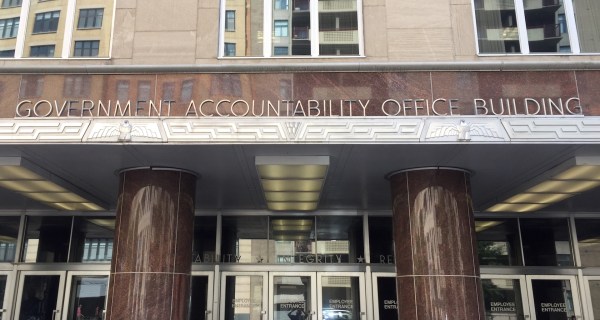Bulk of agencies’ spending data doesn’t fit the DATA Act’s requirements, GAO says

Despite being required to submit structured spending data for more than a year now as part of the DATA Act, only a quarter of the 24 CFO Act agencies were able to supply information considered “complete, timely, accurate or of quality,” a new report has found.
The Government Accountability Office said it analyzed reports made by the inspectors general of 24 CFO Act and 29 non-CFO Act agencies in the second quarter of fiscal 2017 to assess the condition of the spending data they submitted as required by the 2014 data transparency law.
Those OIGs are required to file reports detailing the quality of the spending data agencies are submitting based on four criteria definitions: the completeness of the data, the timeliness of the reports submitted within 30 days of the end of a quarter, the accuracy of transactions provided and the quality of the information when compared to the Office of Management and Budget’s guidance on DATA Act submissions.
Overall, only six CFO Act agencies and nine non-CFO Act agencies had data generally complete, timely, accurate and of quality.
The GAO report found errors ranging from specific agency data reporting flaws to broader problems with how the Treasury Department’s DATA Act broker — the system that validates agency spending information before it goes on the government’s public website, USAspending.gov — extracts agency-submitted data.
GAO officials said the Treasury broker extracted the wrong information from five agency-submitted data elements — including current total value of contract awards, potential total value of the awards, the indefinite delivery vehicles of the contracts and others — causing governmentwide reporting problems. Treasury officials told the GAO that the broker reporting problems had been resolved as of April 2018.
Agencies also had trouble with their own reporting, including control deficiencies for reviewing and reconciling data, a lack of automated IT quality control procedures to assess the data, insufficient documentation and other problems.
While most OIGs provided recommendations to their agencies to address data controls, the GAO also noted that the inspectors general also varied greatly in the methods they used to assess the data accuracy. The report found inconsistency issues ranging from OIGs using different DATA Act submission files for their individual reviews to some auditors using a statistical sampling of the transactional data while others examined all of the submitted data.
While the methods are considered generally accepted standards for government auditing, the GAO said the inconsistency in methods meant that a governmentwide error rate couldn’t be projected.
GAO did not offer any recommendations in the report, but noted that the Council of the Inspectors General on Integrity and Efficiency said it “provides useful information on OIG efforts to meet oversight and reporting responsibilities under the DATA Act.”
Hudson Hollister, executive director of the Data Coalition and a major proponent of the DATA Act, said in a statement that the issues detailed in the report were not a cause for concern.
“Treasury and OMB officials have already begun to take the necessary steps to resolve the issues regarding completeness, quality, timelines and accuracy of data reported to the USAspending.gov site. Our coalition believes the key to improving the data quality will truly happen when all stakeholders begin to use the newly available data set. We encourage the inspector general community to take advantage of the data to make improved oversight decisions.”






